This post contains affiliate links. If you click and buy, I may make a commission, at no cost to you. See my disclosure policy for more information.
It’s amazing the progress we see in the first two years of our child’s life. From little newborns, to fully walking talking members of society, the first two years are an exciting and defining time. One of the greatest areas of development we see is the acquisition of language. From those first early cries to forming full sentences explaining the intricacies of their day, toddlers take great pride in learning how to share their thoughts, ideas, and feelings. But where does it all start? What should I expect?
Each child develops so differently in each area of their development. Language is no different. As a Speech and Language Therapist, I see a huge variation in speed, skill, and competency when it comes to language in the early years. There is a huge range of what is expected “normal” for a two-year-old and therefore it can be difficult to distinguish what we should expect and when. I have so many parents who come to me as they’re concerned about their child’s communication when comparing their child’s language to one of their peers. This is because it is very common for one 2yr old to be using only a few words whilst a child the same age is using full sentences. Below you will find a list of the typical stages of development most children work through when acquiring language. We have added some roughage milestones to help you know what to expect and when to expect it, but bear in mind each child is different and will do things at their own pace.
0 to 6 months
What should I expect?
Crying, cooing, looking, and early smiles.
What does that look like?
Looking down at your little new-born baby, it’s hard to imagine that language acquisition has already started. From day one our child is listening to our words and sounds, looking at our faces, and reading our body language and expressions. Although at this stage they may be making minimal noise themselves they will already be learning key skills for communication. Apart from crying, the first sounds our baby makes is called “cooing”. These are those early vocalizations, squeals, grunts, and shouts. This is your baby starting to interact and enjoy the world around them, trying out their lungs, voice box, and mouths. Many of these early cooing sounds are involuntary however as time goes on they may start interacting with you as you talk to them and cooing back in response. Your baby is trying out different sounds and learning how to use their mouth and voice box. Some of the sounds may begin to be used more frequently especially those similar to vowel sounds.
How can I help?
You can encourage development in those early months by turning off background noise and distractions and having some fun making sounds with your baby. Keep your face close so they can see your mouth and eyes, make different sounds using varying pitch and volume to entertain your little one. If they join in, imitate the sound they are making, take turns, and have fun!
6 to 12 months
What should I expect?
Cooing, crying, looking, smiling, babbling.
What does that look like?
Your little one is now learning fast, sitting, early crawling, and starting to interact with the world around them in a new way. In this period of development, we often see the start of babbling. Babbling is when your baby makes a string of sounds using a repeated consonant or vowel-like “bababa” “gagagaga”. These vocalizations are unlikely to have meaning at this point however it is extra exciting when they start babbling “mumumumu” or “dadada” as we can start to feel they are almost ready to interact with us using words. They will enjoy making sounds, trying out different lip shapes, and using singsong intonation to try out different pitch. They will also enjoy seeing how adults and children around them react when they babble as often we can’t help but repeat it back to them.
How can I help?
The best thing you can do is follow your babies lead and join in. Turn off background noise where possible, bring your face in clear view, copying the sounds, and emphasizing your mouth movements so they can watch your lips and mouth shape. Include actions and movement with the sounds to make them even more exciting and try to model a range of different consonants to them to allow them to hear a whole range of sounds.
1 year
What should I expect?
Babbling, early words out of context, early words in context, crying, pointing, smiling
What does this look like?
Now they are one, your little one likely to be crawling and some maybe even walking. They will recognize you as their significant person and will enjoy interactions with you the most. At this stage, we would expect babbling to start transitioning into combinations of sounds that sound like words e.g. bab, ma, su, didi. Many of these are not proper words yet but maybe the early stages of real words coming through. They may start to use some real words like “no”, mimic animal sounds, copy simple words they hear often in their environment, and the early use of “mama” and “dada” even if they haven’t associated it with you yet. These early words may or may not be used in the right context, and their vocabulary use varies from day to day, having a word one day but then not the next. All of this is them trying out their new skills, observing how others react to their communication, and learning this new way of interacting with their environment.
How can I help?
Choose 10 familiar words of favorite places, people, toys, pets etc, and model them clearly and simply to your child. Try and have the items/person in your child’s visual field so they start relating the word to the thing. Make sure you respond to your child’s vocalizations even if you’re not sure what they are trying to say. Respond back to their attempts to let them know you are listening and praise their efforts and attempts. Over time your child will learn to be more accurate with these early words especially if their attempts are successful e.g. they say “Dada” and dad comes, they say “juice” and you provide them a drink.
18 months to 2 years
What should I expect?
Words out of context, words in context, smiling, laughing, pointing, crying, joining two words together, learned phrases.
What does that look like?
From 18 months we would expect your child to say some everyday words and use them in the right context e.g. “no” to reject something, “dada” to request that his presence, “bye-bye” when leaving somebody. Some of these words may not be clear as their speech sound pronunciation will still be developing (this is totally fine!). By the age of two, we would expect a child to have a selection of words they use often and in the correct context to name items, request, reject, and express early thoughts and feelings. Many 2-year-olds will then start using these single words in small two-word phrases e.g. “mummy no”, “ball go”, “bye-bye daddy” “more bubbles”. If your child is still mainly babbling and using single words at this point there is no need to worry. As we outlined above all children are different and six months can make a huge difference. Just make sure you’re continuing to chat with your child in simple clear language and initiating lots of play and one-to-one interaction at home on a daily basis. If your concerns continue, have a chat with your local Speech and Language Therapy service for support.
How can I help?
Continue to support vocabulary development by naming everyday items that they come across in their environment, support the development of two-word phrases by modeling small simple sentences of words that they know and are confident with, and explore a wider variety of language e.g. verbs and adjectives to support the enrichment of the vocabulary.
Guest Post By El Robertson

Pediatric Speech and Language therapist BSc

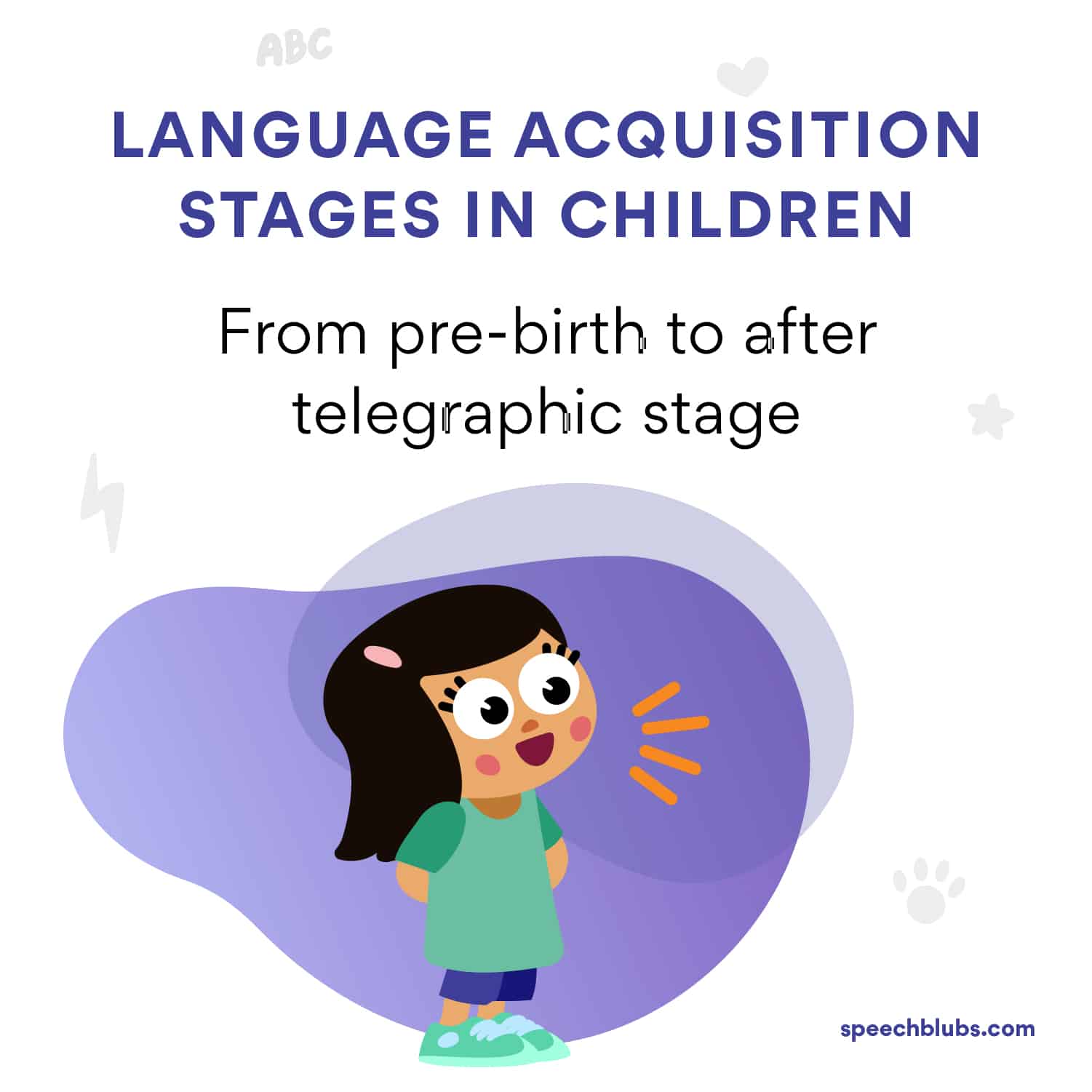
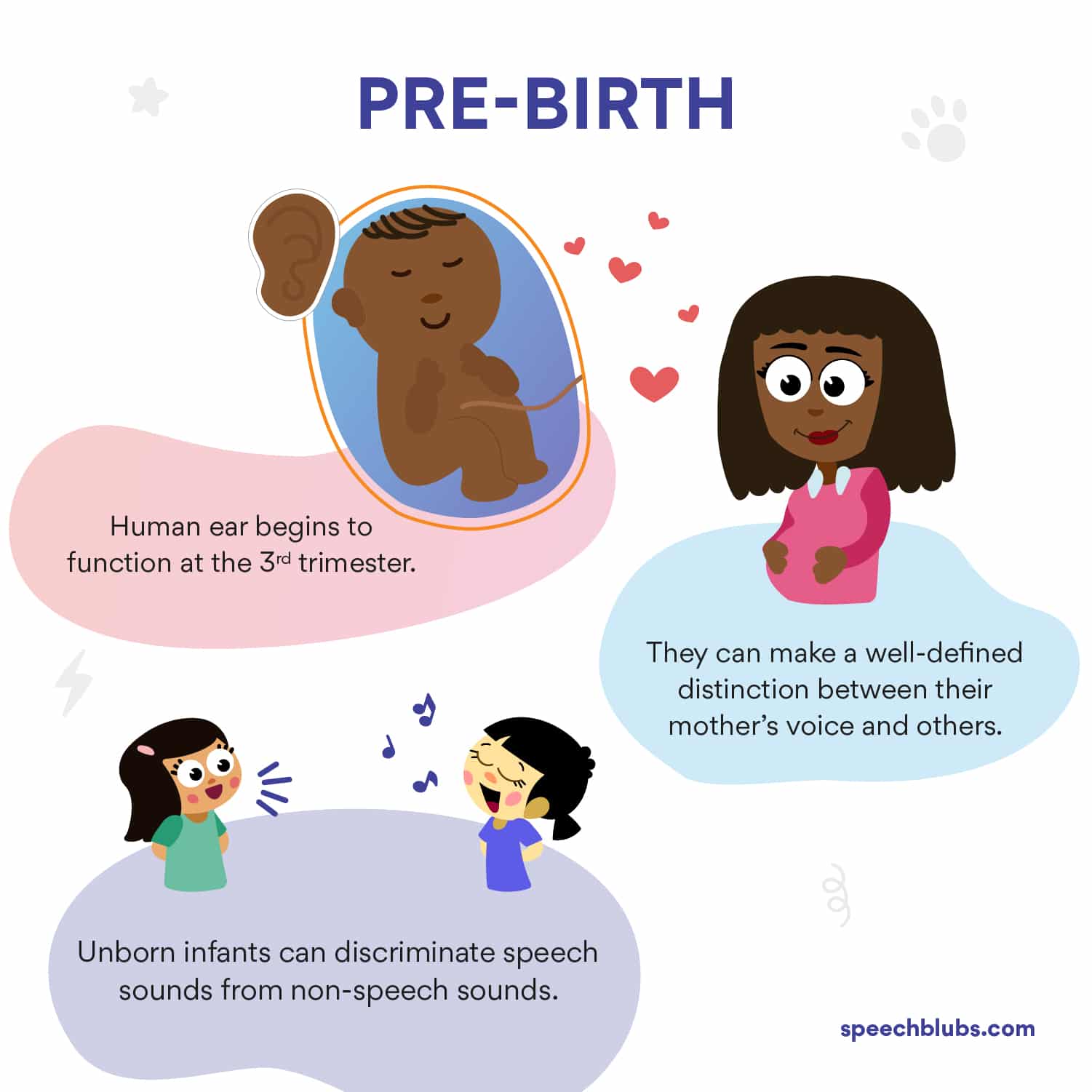
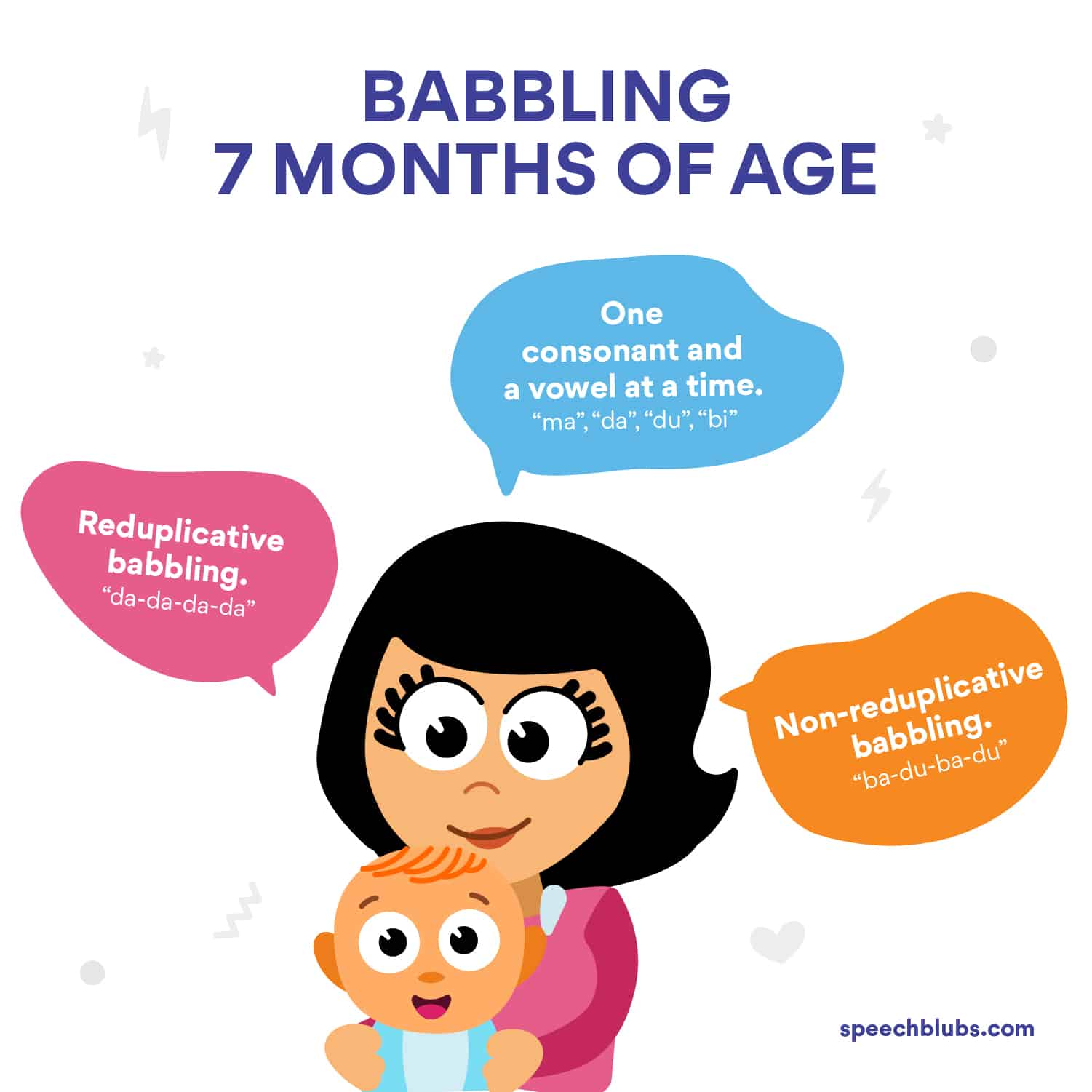
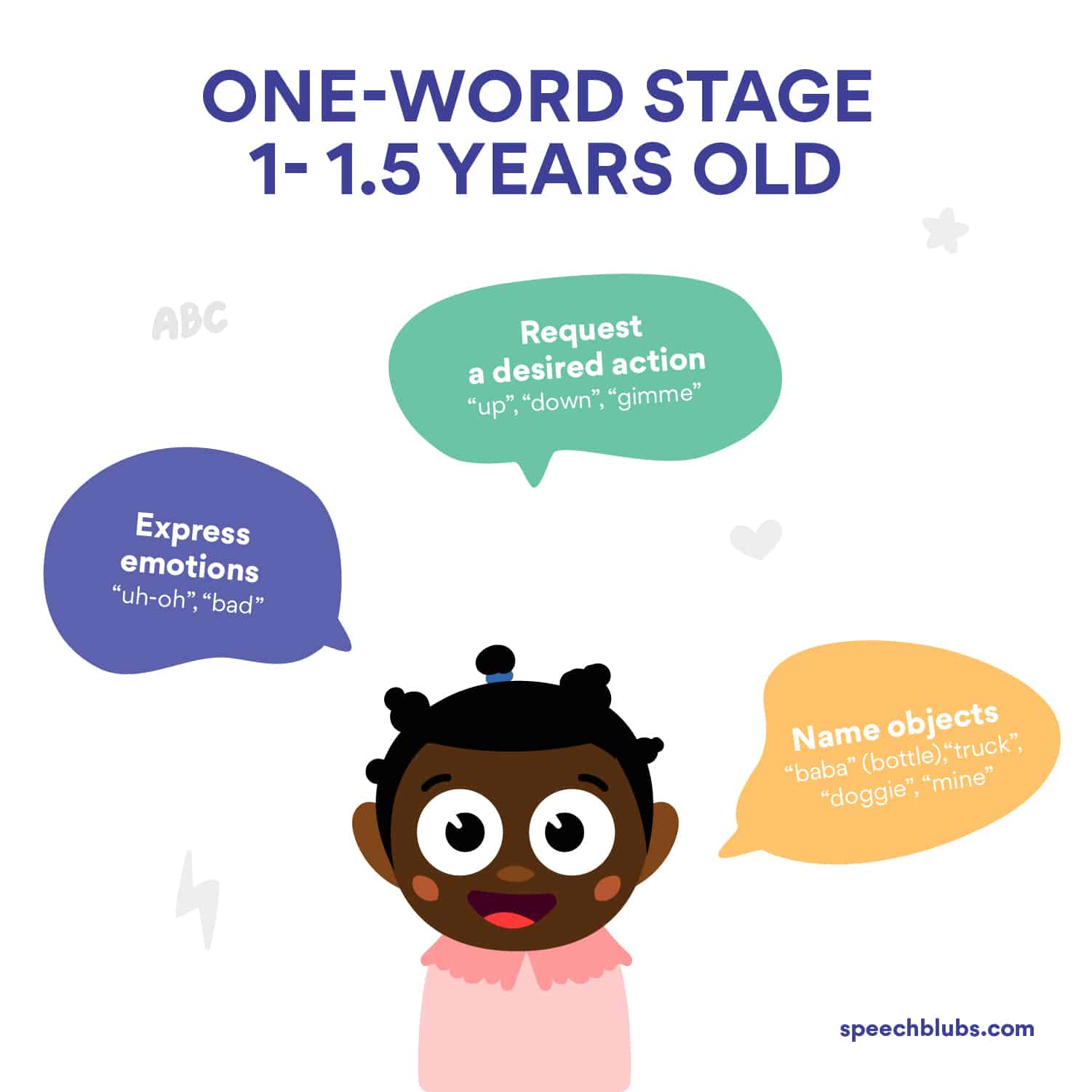
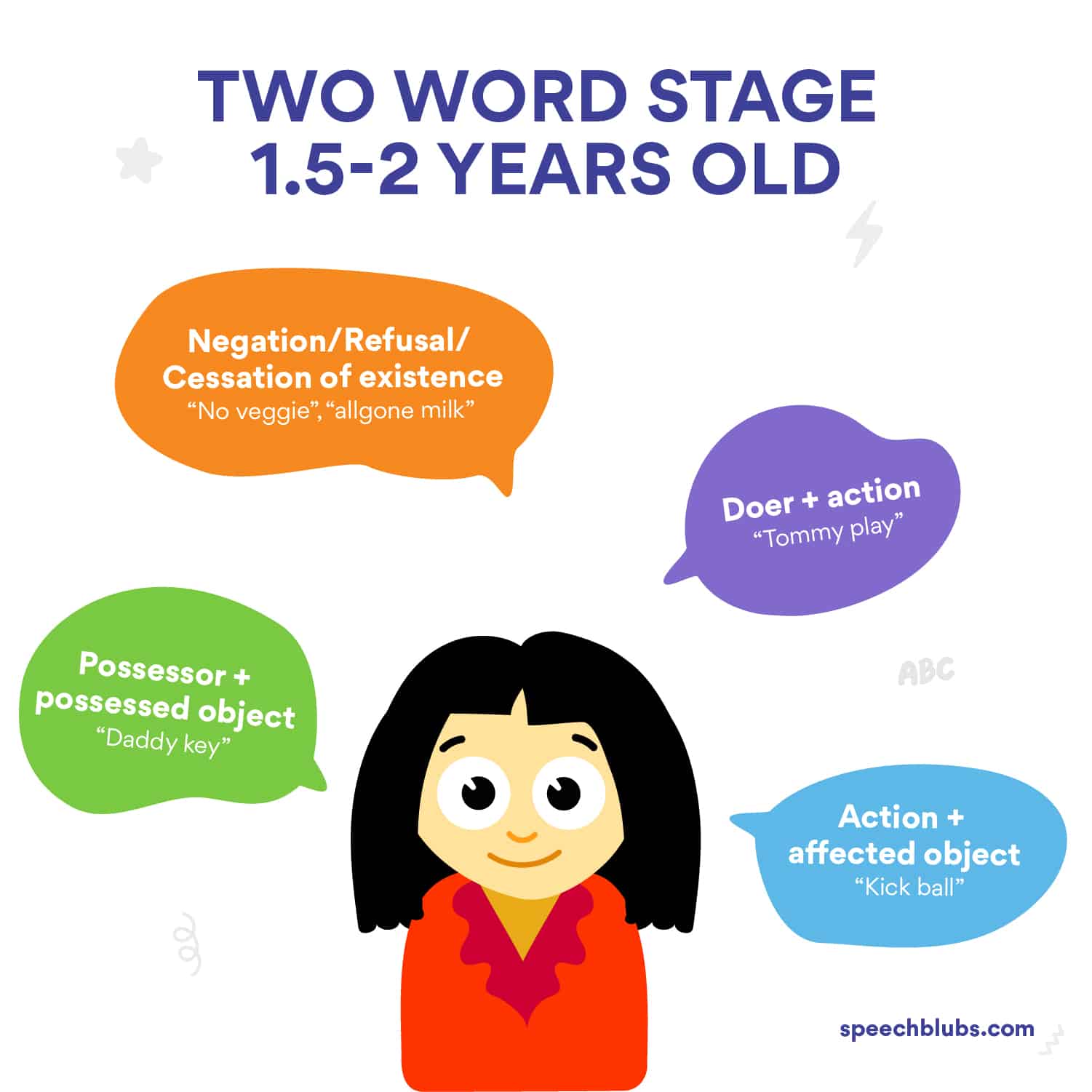
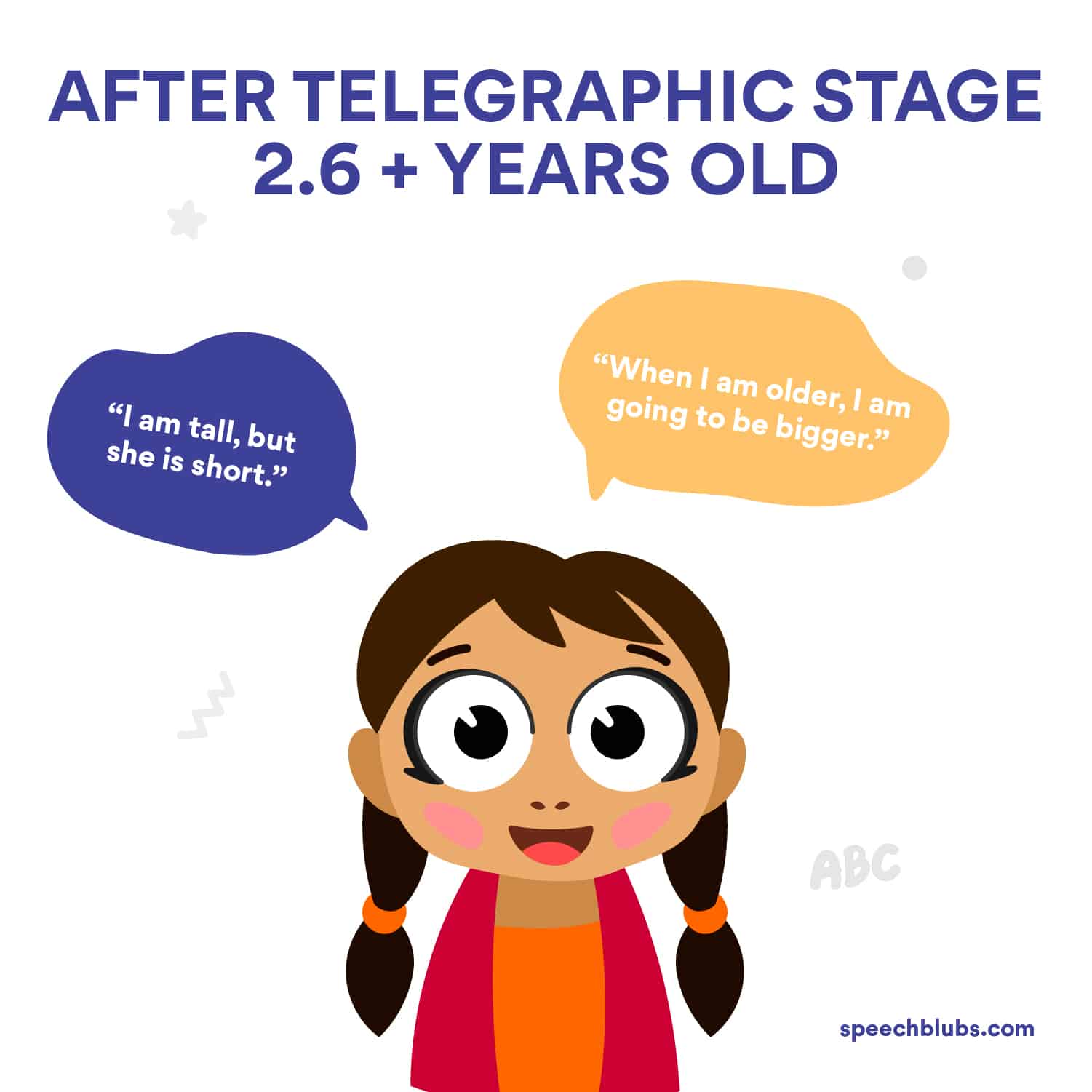
Leave a Reply